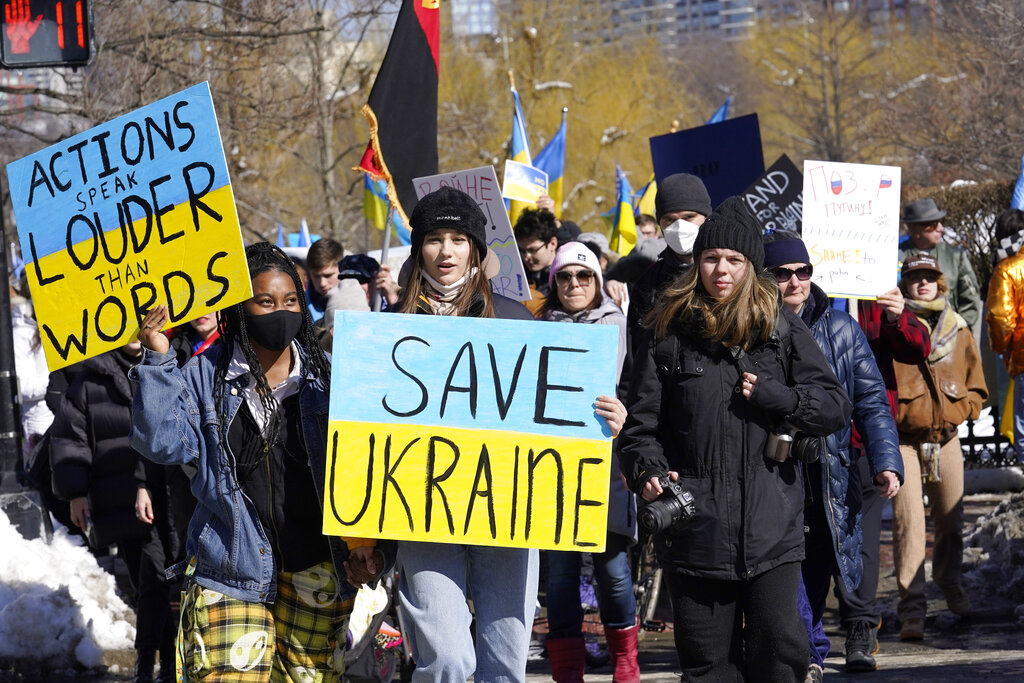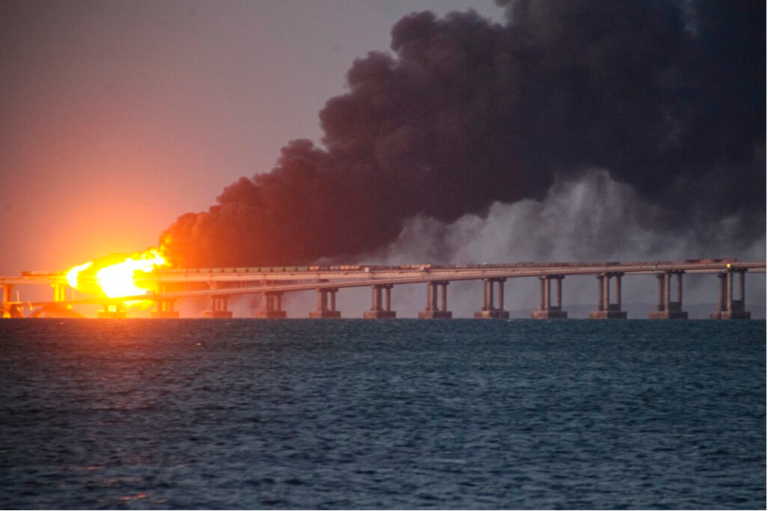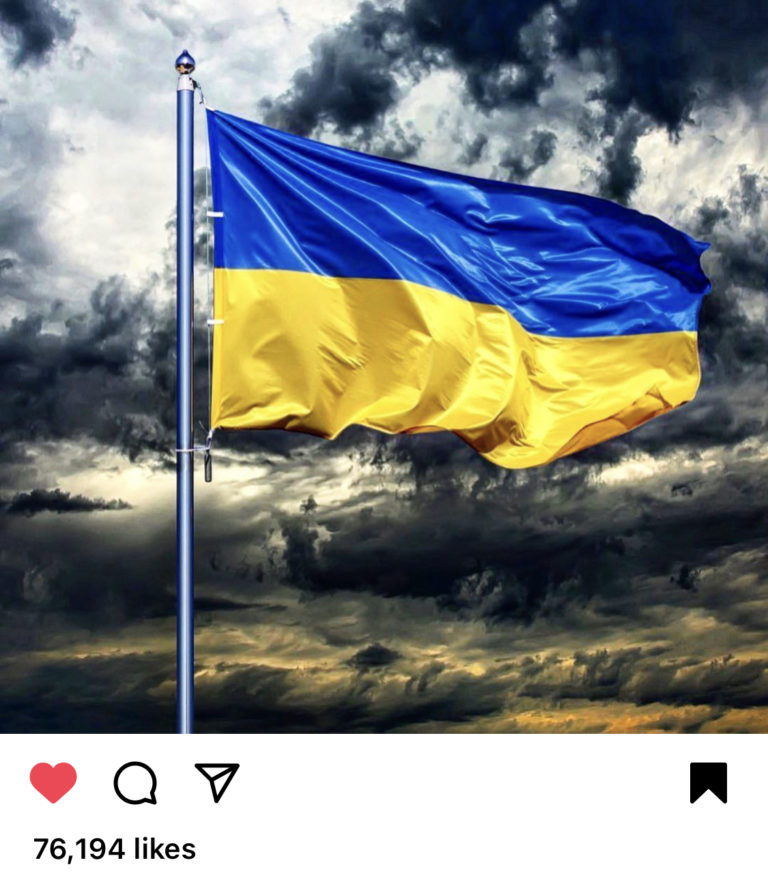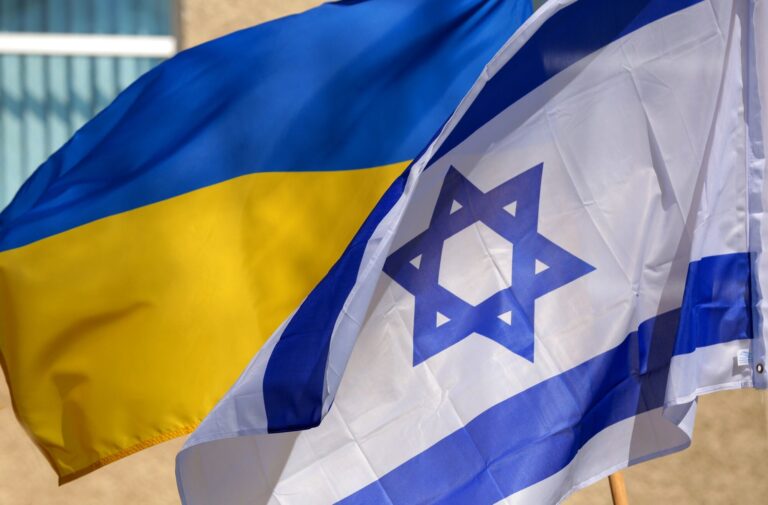
Ukraine was always the place from which my family was forced to flee. As a biracial, multiethnic individual, my identity has always been fluid, but I have never identified as Ukrainian. Why would I want to identify myself with the land that tortured and rejected my ancestors? That side of my family was simply Jewish-American because, despite the United States’ many horrific shortcomings, it took in my family when they would have otherwise faced certain doom.
Over a century before Russian President Vladimir Putin launched an unprovoked invasion of Ukraine, my great-grandparents left what was then Tsarist Russian-occupied Ukraine. It was one occupation in a long line of Russian-led colonial endeavors in the region. While the two countries arose from the same Middle Age Viking settlement known as Kievan Rus, they had evolved into two distinct nations with differing cultures and languages in the time that elapsed between the first settlement and when Ukraine was annexed by the Russian Empire in 1793.
Since the early 19th Century, it has been Russian policy to attempt to eliminate the distinct language and culture of the Ukrainian people. It has happened under the Tsars, Stalin and, today, Putin is continuing this tragic legacy.
While the details have been lost as English replaced Yiddish as my family’s native language, I have been able to gather that my family was involved in a Pogrom in the early twentieth century and that they fled Kyiv for the United States circa 1912. My family were assigned new “American” names upon arriving at Ellis Island. Chaim became Hyman, Chava became Eva and the family surname Njavnik was anglicized to Nash.
My family settled in Minnesota which was known to have a small, but close-knit Jewish population. They faced anti-Semitism and poverty, but at least they were physically safe. My grandfather was born and my great-grandfather worked as a junk peddler, a common job for poor Jewish immigrants in the region. My grandfather left school after the eighth grade to help support the family and, at seventeen, he lied about his age to enlist during World War II where he faced anti-Semitism from his own platoon.
From what I have been able to piece together from fragmented family stories, my great-grandmother suffered from what we would now describe as Post Traumatic Stress Disorder due to being tortured by the Russians. After divorcing my great-grandfather, she spent the rest of her life in a mental hospital.
Russian-occupied Ukraine was where my family was traumatized. They were victims of the first wave of Russian occupation and the second wave was just as horrific. From 1932 to 1933 Stalin purposely starved millions of Ukrainians in what is now called the Holodomor, a combination of the Ukrainian phrases for “starvation” and “inflicting death.” Why was Stalin moved to kill millions of innocent people? Ukrainians had a strong sense of national identity and sought independence: they posed a threat to his rule.
That brings us to Putin’s invasion of Ukraine. Despite what is being spewed on Russian state-controlled media, there is absolutely no justifiable pretext for this invasion. The reason Putin has brought war back to Europe is simple: like the Russian leaders that came before him, he believes that a Western-backed sovereign Ukraine poses a threat to his authoritarian rule over the Russian people.
In a time where appalling xenophobic attacks are being raged against anything tied to Russia, it is important to separate the country’s leader from its people. This is Putin’s war and there are many brave Russian civilians out protesting in the streets in a country where it is simply not safe for them to do so. As of March 2, over 6,400 anti-war protesters have been arrested as large-scale “illegal” protests continue as protesters fight for justice.
Due to centuries of entanglement between Russia and Ukraine, there are intrinsic connections between the countries. Many families have members in both nations and Putin has employed this narrative when attempting to justify his invasion saying that he seeks to reunite the nations. For families with members on both sides of the border, however, there is the tragic possibility of relatives killing each other in battle.
It is moments like these where I feel so fortunate and relieved to be from the United States in spite of the atrocities this country has committed. I am only alive today because my family was able to escape after facing unspeakable abuse, a reality that I share with many fellow Jewish-Americans. I get to watch these events unfold from my television instead of living through them. That is something I cannot take for granted.
As the war started last week, I felt an anger deeper than simply being appalled by Putin’s actions. I am angry that other families in the same country are about to go through the atrocities my family went through at the hands of Russian autocrats. I felt something that went beyond anger, sadness and relief: kinship with Ukraine.
In an almost instantaneous shift, I began to identify as Ukrainian. Ukraine is no longer the land my family fled, but a land of opportunity whose people are bravely risking their lives to fight for their freedom and democracy. These people are fighting against the force of the oppressor that tortured my family generations ago. They are fighting to prevent a repeat of history because their ancestors, like mine, have lived through it.
Ukraine has come a long way since the days of the Tsar’s occupation. According to a 2019 Pew Research poll, Ukraine is the most accepting country towards its Jewish citizens in all of Central and Eastern Europe. Their President, who has been hailed as a hero in his defiance to the invasion, is Jewish and the descendent of Holocaust victims. The land that once expelled my family has come to not only tolerate Jews, but to elect and embrace their Jewish leader as they face the biggest trial of their young country’s history.
I once asked why I should identify with the land that forced my family to flee. I have since realized that it was not Ukraine that forced my family to flee, but Russian occupiers. As an independent state, Ukraine has been able to make staggering progress, but this progress will be relegated to the history books if Putin’s invasion succeeds. As the ancestor of Ukrainian refugees, I must do whatever in my power to stop this. Understanding my family history, I must go beyond identifying with the Ukrainian cause but as a Ukrainian myself because what is happening in faraway Eastern Europe hits close to home.



